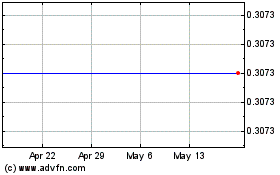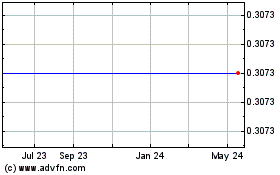Shanghai Escugen Biotechnology Co., Ltd. (“Escugen”), a partner of
Levena (Suzhou) Biopharma Co., Ltd. (“Levena”), a wholly owned
subsidiary of Sorrento Therapeutics, Inc. (Sorrento), today
released preliminary results from a first-in-human study of ESG401,
a trophoblast cell-surface antigen 2 (TROP2) antibody drug
conjugate (ADC), in patients with locally advanced/metastatic solid
tumors at the 2023 Annual Meeting of ASCO, the American Society of
Clinical Oncology, held June 2-6 in Chicago, IL. ESG401 is an
innovative ADC developed by Escugen and Levena. Escugen and Levena
Biopharma jointly own the domestic and international patents of
this ADC and share global rights for the product. ESG401 is
composed of a humanized anti-Trop2 IgG1 monoclonal antibody (mAb)
conjugated to a topoisomerase I inhibitor SN38 via a proprietary
stable covalent linker with a drug antibody ratio (DAR) of 8.
ESG401 has potential differentiated advantages over its competitors
in terms of safety, effectiveness and process robustness. Using an
innovative, highly stable and cleavable linker, this ADC
demonstrated that it releases very little free toxin during
circulation, which may reduce off target toxicity in a series of
preclinical studies. Additionally, premature release of the mAb may
compete for binding sites with the ADC to reduce its efficacy. The
ADC highly enriches in tumor tissues and rapidly endocytoses,
thereby effectively killing tumor cells and inhibiting tumor
growth.
In the Phase I study, adult ESG401 patients with locally
advanced/metastatic solid tumors refractory to or relapsed from
standard treatments with measurable disease (RECIST v1.1) were
eligible. ESG401 was administered by IV infusion initially in an
ascending dose safety study by designated dose and regimen until
unacceptable toxicity or progressive disease and followed by
expansion cohorts. The Bayesian Optimal Interval (BOIN) design was
used to establish the maximum tolerated dose (MTD). As of February
3, 2023, 35 heavily pretreated patients with a median age of 53
years were treated with at least one dose of ESG401 during dose
escalation, 2 to 20 mg/kg administered every 3 weeks (Regimen A),
or 12 to 16 mg/kg on day 1, 8, and 15 in a 4-week cycle (Regimen
B). Eighty percent of the patients had an ECOG status of 1.
Sixty-three percent of the patients had received at least 3 lines
of prior therapy and overall the number of lines of prior therapy
was a median of 4 (range 2-10). A total of 94% of patients had
visceral metastases (11% brain, 63% liver, 60% lung) at baseline.
From the ASCO poster, patient demographics and baseline
characteristics is shown below:
A photo accompanying this announcement is
available at
https://www.globenewswire.com/NewsRoom/AttachmentNg/bbc508be-c81f-4493-90e9-e6dc146cb70a
While one patient at 20 mg/kg reported a dose limiting toxicity
(grade 4 neutropenia and grade 3 febrile neutropenia), the MTD was
not reached. The most common treatment-related adverse events were
leukopenia, neutropenia, anemia, fatigue and nausea or vomiting.
The most common grade 3 events were leukopenia (29%) and
neutropenia (31%) with no grade 3 thrombocytopenia, diarrhea, skin
rash or oral mucositis. There was no evidence of interstitial lung
disease. The frequency of TEAEs > 15% regardless of causality is
shown below.
A photo accompanying this announcement is
available at
https://www.globenewswire.com/NewsRoom/AttachmentNg/758ccb85-a5f2-4edb-a877-340b31789fe9
Of the 33 efficacy evaluable patients, 12 achieved partial
responses and 4 achieved stable disease lasting at least 24 weeks.
The dose of 16 mg/kg was identified as the therapeutically relevant
dose. The overall response rate and disease control rate were 36%
(4 of 11 patients) and 64% (7 of 11 patients), respectively, in
patients with triple negative breast cancer, and 62% (8 of 13
patients) and 77% (10 of 13 patients), respectively, in patients
who were HR+/HER2- breast cancer. Three patients have been on
treatment for at least 12 months. These data
demonstrate that ESG401 is well tolerated and demonstrates efficacy
in heavily pretreated patients. Additional studies are ongoing with
this innovative promising treatment. A waterfall plot of the data
demonstrating the best % change in sum of longest dimension in
target lesions from baseline is shown below for patients who
received the therapeutic relevant dose (16 mg/kg).
A photo accompanying this announcement is
available at
https://www.globenewswire.com/NewsRoom/AttachmentNg/d207ac66-1218-4605-8e27-dc66f6586667
About Escugen Biotechnology Co., Ltd.
Escugen Biotechnology Co., Ltd. is a clinical-stage
biotechnology company committed to developing and commercializing
innovative drugs for the treatment of cancer, autoimmune disease
and other diseases with unmet medical needs. The company’s leading
programs include ESG401, an anti-Trop2 antibody drug conjugate,
currently in Phase Ib/II clinical trials in patients with locally
advanced/metastatic solid tumors, and ESG206, an anti-BAFFR
monoclonal antibody, currently in Phase I study in subjects with
B-cell Lymphoid Malignancies.
About Sorrento Therapeutics, Inc.
Sorrento is a clinical and commercial stage biopharmaceutical
company developing new therapies to treat cancer, pain (non-opioid
treatments), autoimmune disease, and COVID-19. Sorrento's
multimodal, multipronged approach to fighting cancer is made
possible by its extensive immuno-oncology platforms, including key
assets such as next-generation tyrosine kinase inhibitors ("TKIs"),
fully human antibodies (“G-MAB™ library”), immuno-cellular
therapies (“DAR-T™”), antibody-drug conjugates (“ADCs”), and
oncolytic virus (“Seprehvec™”). Sorrento is also developing
potential antiviral therapies and vaccines against coronaviruses,
including STI-1558 and COVI-MSC™, and diagnostic test solutions,
including COVIMARK™.
Sorrento's commitment to life-enhancing therapies for patients
is also demonstrated by our effort to advance a TRPV1 agonist,
non-opioid pain management small molecule, resiniferatoxin (“RTX”),
and SP-102 (10 mg, dexamethasone sodium phosphate viscous gel)
(SEMDEXA™), a novel, viscous gel formulation of a widely used
corticosteroid for epidural injections to treat lumbosacral
radicular pain, or sciatica, and to commercialize ZTlido®
(lidocaine topical system) 1.8% for the treatment of postherpetic
neuralgia (PHN). RTX has been cleared for a Phase II trial for
intractable pain associated with cancer and a Phase II trial in
osteoarthritis patients. Positive final results from the Phase III
Pivotal Trial C.L.E.A.R. Program for SEMDEXA™, its novel,
non-opioid product for the treatment of lumbosacral radicular pain
(sciatica), were announced in March 2022. ZTlido® was approved by
the FDA on February 28, 2018.
For more information visit www.sorrentotherapeutics.com
Forward-Looking Statements
This press release and any statements made for and during any
presentation or meeting contain forward-looking statements related
to Sorrento Therapeutics, Inc., under the safe harbor provisions of
Section 21E of the Private Securities Litigation Reform Act of 1995
and subject to risks and uncertainties that could cause actual
results to differ materially from those projected. Forward-looking
statements include statements regarding Sorrento’s products,
technologies and prospects, the development of and prospects for
ESG401 and ESG401’s potential advantage over any competitive
products in terms of safety, effectiveness and process robustness.
Risks and uncertainties that could cause our actual results to
differ materially and adversely from those expressed in our
forward-looking statements, include, but are not limited to: risks
related to Sorrento's technologies and prospects, including, but
not limited to risks related to safety and efficacy of ESG401and
seeking regulatory approval for ESG401; clinical development risks,
including risks in the progress, timing, cost, and results of
clinical trials and product development programs; risk of
difficulties or delays in obtaining regulatory approvals; risks
that clinical study results may not meet any or all endpoints of a
clinical study and that any data generated from such studies may
not support a regulatory submission or approval; risks that prior
test, study and trial results, including those for ESG401, may not
be replicated in continuing or future studies and trials; risks of
manufacturing and supplying drug product; risks related to
leveraging the expertise of its employees, subsidiaries, affiliates
and partners to assist Sorrento in the execution of its product
candidates’ strategies; risks relating to the voluntary proceedings
under Chapter 11 in the Bankruptcy Court (the "Chapter 11 Cases"),
Sorrento's ability to continue operating in the ordinary course
while the Chapter 11 Cases are pending, the timing and outcome of
the Chapter 11 Cases, Sorrento's ability to obtain timely approval
by the Bankruptcy Court of the motions filed in the Chapter 11
Cases, employee attrition and Sorrento's ability to retain senior
management and other key personnel due to the distractions and
uncertainties of the Chapter 11 Cases, Sorrento's ability to
maintain relationships with suppliers, customers, employees and
other third parties and regulatory authorities as a result of the
Chapter 11 Cases, the Bankruptcy Court's rulings in the Chapter 11
Cases, the length of time that Sorrento will operate under Chapter
11 protection and the continued availability to Sorrento of
operating capital during the pendency of the Chapter 11 Cases,
risks associated with any third party motions in the Chapter 11
Cases, increased administrative and legal costs related to the
chapter 11 process, exposure to potential litigation and inherent
risks involved in a bankruptcy process, the potential adverse
effects of the Chapter 11 Cases on Sorrento's liquidity or results
of operations, or Sorrento's ability to timely file its periodic
reports or meet periodic reporting requirements with the SEC; and
other risks that are described in Sorrento's most recent periodic
reports filed with the Securities and Exchange Commission,
including Sorrento's Annual Report on Form 10-K for the year ended
December 31, 2022 and subsequent Quarterly Reports on Form 10-Q
filed with the Securities and Exchange Commission, including the
risk factors set forth in those filings. Investors are cautioned
not to place undue reliance on these forward-looking statements,
which speak only as of the date of this release, and we undertake
no obligation to update any forward-looking statement in this press
release except as required by law.
Media and Investor Relations
Contact: Brian Cooley
Email: mediarelations@sorrentotherapeutics.com
Sorrento® and the Sorrento logo are registered trademarks of
Sorrento Therapeutics, Inc.
G-MAB™, DAR-T™, Seprehvec™, SOFUSA™, COVISHIELD™, COVIDROPS™,
COVI-MSC™, COVIMARK™, Fujovee™ and Ovydso™ are trademarks of
Sorrento Therapeutics, Inc.
SEMDEXA™ (SP-102) is a trademark of Semnur Pharmaceuticals, Inc.
A proprietary name review by the FDA is planned.
ZTlido® is a registered trademark owned by Scilex
Pharmaceuticals Inc.
All other trademarks are the property of their respective
owners.
©2023 Sorrento Therapeutics, Inc. All Rights Reserved.
Sorrento Therapeutics (NASDAQ:SRNE)
Historical Stock Chart
From Dec 2024 to Jan 2025

Sorrento Therapeutics (NASDAQ:SRNE)
Historical Stock Chart
From Jan 2024 to Jan 2025
